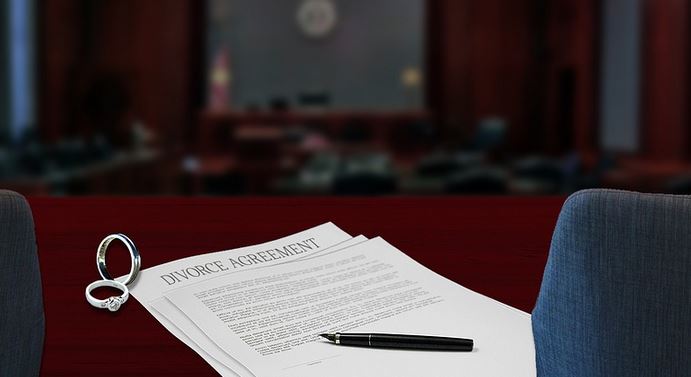The Gemara (Gittin 90a-b) states, “Anyone who divorces his first wife – even the Altar sheds tears.” Yet, the reality is, divorce happens. When it’s time to tell the children you’ll be getting divorced, what do you say? To a child, understanding that their parent has been in an unviable marriage may not be readily apparent. Whether the children are fully grown with children of their own, or whether the children are still young, it won’t be easy.
Lashon ha’ra — communicating in a derogatory way about someone that may cause that person embarrassment may be explicit or subtle. Even the slightest rolling of your eyes, a scowl, or other nuanced facial expression or body language may constitute lashon ha’ra. The constant challenge will be to converse with your children about your impending divorce without speaking lashon ha’ra, yet still talking authentically and sensitively.
So, how do you begin? Talking to your children about difficult subjects is — well — difficult. Avoiding the subject and your children is not the solution. Both must be faced. You will second guess yourself even as you’re speaking. Nonetheless, you must do it. In fact, doing so will help make the divorce more real for you.
Here are some brief suggestions:
Women and men stay in bad marriages all the time and are compelled by different motives. While it’s hard to leave a marriage and its promise of a lifelong bond, especially when there are children, shame and guilt often play a role in one’s hesitancy to leave. Shame and guilt are linked to the worry of being judged, but the way you judge yourself is what truly matters — for your own wellbeing and that of your children.
Children can get angry at anything they perceive as unfair and may blame you for the divorce. Not even a well-grounded parent is immune to these hurtful accusations, but parents who consider how to respond to this type of complaint handle it like they handle other parenting challenges – with patience, compassion, and a focus on the process as well as the outcome. By consistently using the right parenting approach, parents prime their children to build resilience, a quality they will need to get through the divorce, as well as future challenges they will face. You did not choose this embroilment, but you have chosen to terminate it.
You went into the marriage with expectations of a relationship which failed to materialize. You’ve been in an uncomfortable and untenable marriage. While ending it is the right thing to do, you’re facing a situation which will test you. The marriage tested you and so will the divorce. The major difference in these two tests is your adversary. Make sure misplaced guilt or remorse don’t force you into another untenable relationship – an adversarial relationship with yourself.
How you view yourself and the choices you’ve made will spill over onto your children and will impact how they view you and how they view themselves. While none of this is easy, and all of it is complicated, focus on keeping a healthy perspective of your decision to end your unhealthy marriage. Be your own advocate and find advocacy through the support and friendship of others.
You made the decision to leave the marriage and you will face many more decisions as you find your way in your new life. One of those decisions will be how you speak about your ex-spouse with your children. You may need guidance. Your guide should be someone who shares your values and has the qualifications to lead you in mitigating your doubt and confusion.
Even though the Altar weeps when a divorce occurs, there is a custom to wish each party mazal tov. New beginnings can be good.
—————————
Daniel Pollack, MSW, JD is a Professor at Yeshiva University’s School of Social Work in New York.
Michelle Halle, LCSW is a licensed clinical social worker and therapist in Lakewood, New Jersey.


Why is this information important for the rest of us? Isn’t this something the Rov involved should be giving over to the two parties? Studies show that many people who decide to remain in an unhappy marriage are happy about their decision later on. (As long as there was no abuse happening). This isn’t the right forum to publicise this advice.
If you’re happily married, Mabrouck to you. Happily married couples need not read this entry.